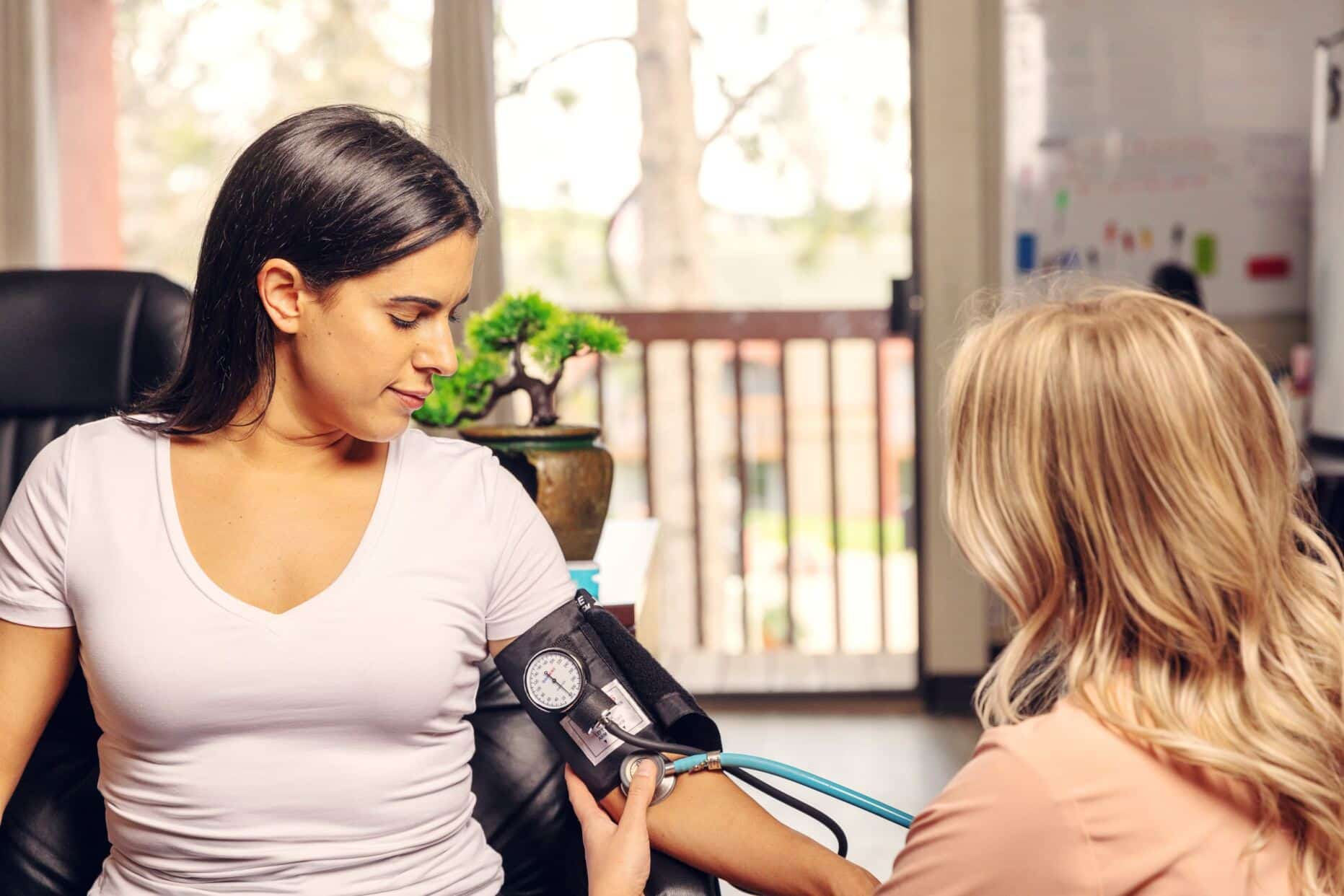Every year Americans are being prescribed highly addictive prescription painkillers to treat their moderate to severe pain. According to the Centers for Disease Control and Prevention (CDC), in 2017 almost 58 opioid prescriptions were written for every 100 Americans. The CDC also mentioned that from 1999 to 2018 over 323,000 Americans have died as a direct result of overdosing on prescription-containing opioids. Prescription painkillers are highly addictive and people who abuse them high a greater chance of developing an addiction that could result in a fatal overdose.
Percocet Defined
What is Percocet? Percocet is a pain-relieving medication that can be obtained by getting a prescription from a doctor. Percocet is a brand name painkiller that contains two active ingredients, oxycodone, and acetaminophen. Oxycodone is a powerful opioid that is derived from the same source and morphine and the illicit drug heroin. Oxycodone is a moderately potent, semisynthetic opioid that is used for the treatment of acute or chronic pain management. Oxycodone is often combined with acetaminophen because acetaminophen increases the potency of oxycodone. Acetaminophen is used to treat mild to moderate pain from backaches, headaches, muscle aches, menstrual periods, colds and sore throats, toothaches, and reduce fevers.
What kind of drug is Percocet? Percocet is a Schedule II controlled substance. A Schedule II substance is a drug that has a high potential for abuse. Percocet contains an opioid drug known as oxycodone. Oxycodone is highly addictive. With use Percocet has the potential to result in severe psychological or physical dependence. Percocet is also an analgesic (pain reliever) because both oxycodone and acetaminophen work to relieve pain. One of the active ingredients in Percocet, acetaminophen, is also an antipyretic (fever reducer). Acetaminophen works by changing the way the body senses pain and cools the body down.
Is Percocet an opioid? Percocet contains an opioid drug known as oxycodone. Opioids are a group of drugs that are found in the opium poppy plant. Opioids work in the brain to produce a variety of effects such as pain relief. Prescription opioids like Percocet are used to block pain signals between the brain and body. They activate the reward center of a person’s brain making them feel relaxed, happy, or high. Over time, the natural chemicals in a person’s brain that activate the reward center will stop working, making a person need to take more of the drug to produce the same effect or even feel normal.
Percocet Abuse and Addiction
Regular use of Percocet, even as prescribed by a doctor, can result in dependence, abuse, addiction, overdose, and death. Percocet has a high abuse potential because it contains oxycodone. People can abuse Percocet in a lot of different ways. The tablets can be chewed, crushed into a fine powder and snorted, or crushed into a fine powder, mixed with liquid and injected. People also abuse Percocet by taking it too frequently or taking a higher dose than intended.
A person who is abusing Percocet might have physical symptoms such as constipation, nausea, drowsiness, confusion, poor coordination, feeling high, worse or increased sensitivity to pain with higher doses, increased dose to relieve pain, and slowed breathing. They could also show behavioral signs such as stealing, forging prescriptions, poor decision-making abilities, taking more than prescribed, appearing high or sedated, and seeking prescriptions from more than 1 doctor.
Commonly used prescription drugs like Percocet activate the brain’s reward center opening the door for potential abuse and addiction. A person who becomes addicted to this drug will have a physical dependence on the medication. They will also compulsively seek the medication and continue to use it even when it is causing massive problems in their life
Effects of a Percocet Addiction
The effects of a Percocet addiction are far-reaching. A person who is addicted to Percocet might engage in risky behaviors because of poor judgment, get involved in crime such as stealing medication to maintain a constant supply of the drug, or their performance at work or school may decline.
They could even start having issues with their interpersonal relationships because drug addiction is causing them to withdraw from their friends and family or even steal from them. When a person becomes addicted to drugs they become unreliable, rebellious, defiant, experience mood swings, paranoia, anger, steal and no longer spend time with the family because they are engaging in substance use disorder.
Percocet addiction can be a gateway to getting into harder, more deadly drugs. According to the National Institute on Drug Abuse, 86 percent of people who used heroin, used opioid pain relievers first. Also, of those who began using opioids in 2000, 75 percent reported that their first opioid-containing drug was a prescription medication. These statistics show that using the painkiller Percocet can result in using more dangerous drugs, like heroin.
According to the National Institute on Drug Abuse, over 2.5 million Americans suffer from opioid use disorder which contributed to over 28,000 overdose deaths in 2014. The effects of a Percocet addiction can be so severe that they result in a life-threatening overdose.
Percocet Treatment
The best way to overcome a Percocet addiction is to go through a detox. A medical detox can be done comfortably at an inpatient rehabilitation clinic. Medical detox will combine medications as well as behavioral therapies to help a person recover from their addiction. Medications that are often used are buprenorphine and methadone. These medications ease the withdrawal process by relieving pain symptoms associated with coming down from an opioid-like Percocet. When medications are combined with behavioral counseling it is considered a “whole patient” approach because the medications target the physical pain and counseling targets the emotional toll withdrawing takes on a person as well as helping a person uncover the root of their addiction and teaching them coping skills to help them prevent future use.
Relapse is often a part of the addiction journey to recovery. Therefore, aftercare is vital in preventing future use of Percocet. Once a person has finished the detox process, the medication naltrexone can be provided to prevent relapse. The use of naltrexone as well as getting involved in support groups like Narcotics Anonymous can help a person have all the tools they need to prevent future drug use. Support groups enable a recovering person to be surrounded by peers that are going through the same difficult recovery journey. This comradery can be extremely beneficial to helping someone stay on track living an abstinent life.
Finding Treatment
Addiction is not as simple as a lack of willpower. It’s a lot more complicated than that. Addiction changes the chemical balance of a person’s brain making it next to impossible to quit. The pain associated with withdrawing is enough to drive anyone back to their prescription drug use in an attempt to relieve the pain. If you or someone you love is addicted to Percocet, finding a top-notch rehab clinic can help. At a rehab clinic you will be provided all the support and treatment necessary to help ease the withdrawal process and make a full recovery. Medications and behavioral therapies will give you all the tools you need to help you physically and mentally overcome your Percocet addiction.
References
- Acetaminophen. National Library of Medicine.
- Addiction Treatment Options. Sunshine Behavioral Health.
- Drug Scheduling. Drug Enforcement Administration.
- Effective treatment for opioid addiction. National Institute on Drug Abuse
- Opioid Addiction. John Hopkins Medicine.
- Opioid Overdose. Centers for Disease Control and Addiction.
- Oxycodone. National Library of Medicine.
- Percocet. RxList.
- Prescription drug abuse. Mayo Clinic.
- Prescription Opioids and Heroin. National Institute on Drug Abuse
Medical disclaimer:
Sunshine Behavioral Health strives to help people who are facing substance abuse, addiction, mental health disorders, or a combination of these conditions. It does this by providing compassionate care and evidence-based content that addresses health, treatment, and recovery.
Licensed medical professionals review material we publish on our site. The material is not a substitute for qualified medical diagnoses, treatment, or advice. It should not be used to replace the suggestions of your personal physician or other health care professionals.






